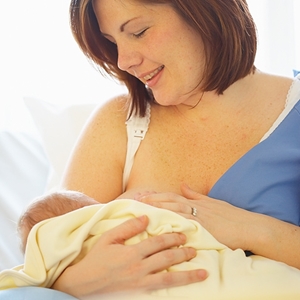If you're getting ready for pregnancy, you're probably mentally preparing yourself for the task of breastfeeding. While most doctors and health organizations strongly recommend breastfeeding infants for at least six months, not all mothers are capable of or comfortable with it. So, do you really have to do it?
When it comes down to it, most pediatricians and experts maintain that one's "breast is best." Your milk will undoubtedly provide your baby with everything he or she needs to grow up healthy and strong. While formulas are created to mimic the nutritional contents of breast milk, they don't contain some of the most beneficial ingredients, like the cells, hormones and antibodies your baby needs to fight off illness.
And, believe it or not, breastfeeding can improve your mental well-being as well, as skin-to-skin contact with your baby can boost your levels of oxytocin, a hormone that helps you relax and also increases milk flow. Studies have also shown that breastfeeding can reduce your risk for health problems like ovarian cancer, postpartum depression and breast cancer.
Having said that, while breastfeeding definitely has its benefits, some experts maintain that certain situations warrant the use of formula. For instance, many mothers may need to take certain medications after pregnancy and may not want to risk passing the chemicals in these prescriptions along to their baby. Additionally, some women need to return to work soon after giving birth, and the pressure of pumping milk combined with job responsibilities may inhibit their mental well-being. This may ultimately impede a woman's ability to parent her child to the best of her ability.
Bottom line? You need to ask yourself the following question – is your breast milk best? Do some soul-searching and see what works for you.
